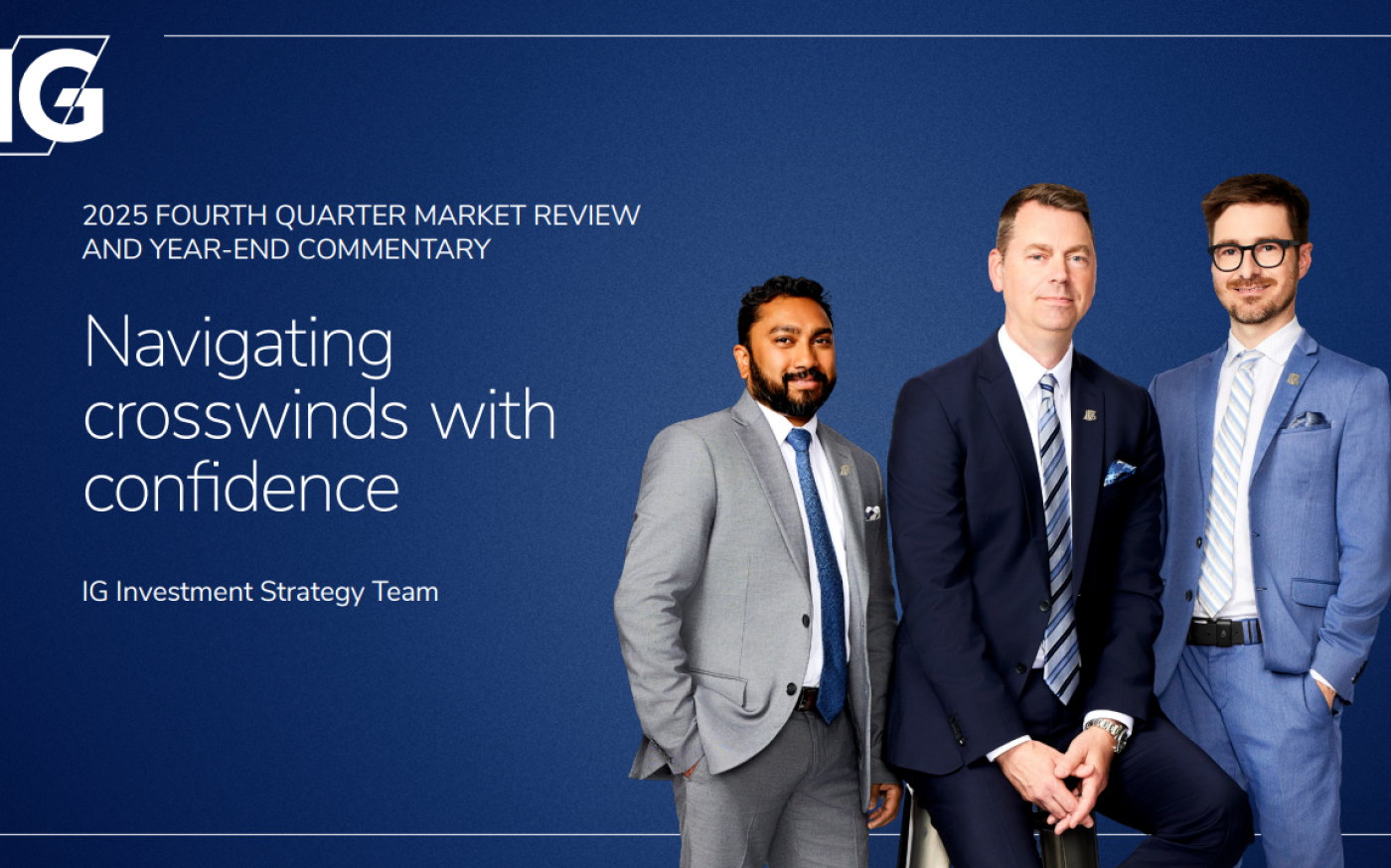Now, more than ever, it’s crucial to pay attention to your mortgage renewal. Discover why it’s so important and how it can boost your financial plan.
The final quarter of 2025 was a moderated reflection of the year’s volatility, upside surprises and resilience. Equity and fixed income markets navigated headline-grabbing events, a record-long U.S. government shutdown, commodity price volatility and mixed signals from central banks. Despite this noise, the prevailing theme remained consistent: global markets rewarded fundamentals over fear.
As you begin to get ready to prepare your 2025 tax return, we want to ensure you’re aware of important upcoming dates and deadlines so you have everything you need to file your return with minimal hassle.
As we turn the page to 2026, investors find themselves navigating a market that has defied expectations. The volatility of early 2025 — driven by geopolitical uncertainty and policy reversals — gave way to a powerful rebound, reminding us that fundamentals (the key principles of investing), not headlines, ultimately steer the course of markets. The recession fears have faded, replaced by signs of reacceleration across global economies. In this year’s outlook, we explore the forces shaping this new phase of the cycle and what they mean for investors seeking clarity amid the noise.
The third quarter of 2025 delivered broad gains across virtually all asset classes, as markets shrugged off caution and rallied strongly.
While it can be tempting to reveal all when using AI tools, it’s important to keep your personal and financial information safe. Here’s how you can do it.
Did you know that over half of Canadians don’t have a will? And that number jumps to 70% for younger Canadians (aged 18-34) and 66% for those aged 35-54. This is even more surprising given that almost 60% of Canadians think they have a good level of estate planning in place.
Winnipeg, MB – February 7, 2025 – IG Wealth Management (“IG”) today announced that 11 of its investment solutions have been recognized with 2024 Fundata FundGrade A+® Awards. These awards are presented annually to Canadian investment funds that achieve consistently high FundGrade scores throughout the previous calendar year.
Getting your spouse and kids to agree on an approach to money can be tricky. These strategies can help get your whole family aligned.
Getting your spouse and kids to agree on an approach to money can be tricky. These strategies can help get your whole family aligned.
Many investors struggle to keep their emotions in check when making investment decisions. After all, we’re human beings; our instincts often dictate our behaviour, even in the face of hard facts and rationality. These four strategies can help you to avoid making impulsive decisions and keep your financial plan on track.
Many investors struggle to keep their emotions in check when making investment decisions. After all, we’re human beings; our instincts often dictate our behaviour, even in the face of hard facts and rationality. These four strategies can help you to avoid making impulsive decisions and keep your financial plan on track.













